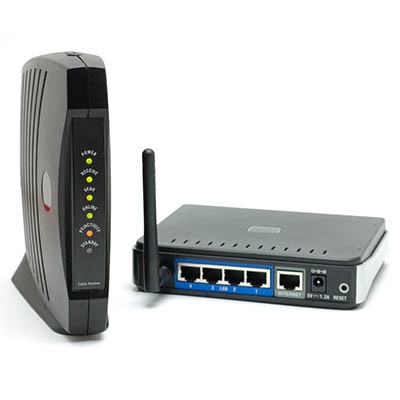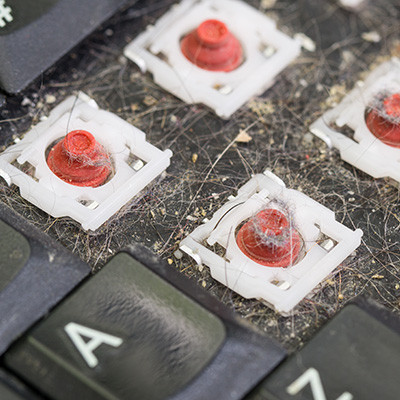
KB Technologies Blog
KB Technologies has been serving the Deerfield Beach area since 2002, providing IT Support such as technical helpdesk support, computer support, and consulting to small and medium-sized businesses.
0 Comments
Whether you like it or not, 2025 could be a rough year, and not for the reasons you suspect. Businesses like yours might have a hard time with hardware acquisition, among other issues forecast by industry professionals. Today, we want to address some of the most significant issues on every industry insider’s mind.
Have you looked at the forecast lately? Not the weather forecast… the market forecast. You know, the one that shows that proposed tariffs could impact the market—including hardware costs—as early as February 2025.
You know what that means: it’s time to upgrade or purchase new hardware today before the price hikes make it impossible.
Have you ever noticed how expensive tech stuff can get? Well, businesses feel the same way, especially when prices are going up fast. That’s why many companies are turning to the cloud. It’s like a virtual space where they can store and run everything they need—without buying a bunch of pricy equipment. Let’s see how SMBs can use the cloud to save money.
Some businesses feel pressure to get the newest, most advanced technology. It sounds like a great idea, but just because a tool is available doesn’t mean it’s the right choice for your business right now. Here are some smart strategies to help make sure your business gets a good return on any tech investments.
In a recent global law enforcement operation, authorities dismantled a colossal botnet that had been operating for nearly a decade. The U.S. Justice Department has accused YunHe Wang, a 35-year-old from the People’s Republic of China, of creating and spreading malware that infected millions of Windows computers worldwide. This malware formed a vast botnet known as 911 S5. Wang allegedly sold access to the compromised IP addresses to other cybercriminals, amassing millions of dollars.
A lot of businesses are choosing to embrace some semblance of remote work. This has made networking your business simpler. If your staff is coming and going from your office, you can, by all practical means, avoid using cabled hardware in the front of your business. Unfortunately, most businesses do need to have some workstations and other IT connected and it can get messy quickly.
Every business faces two crucial IT decisions: selecting the appropriate hardware for its operations and determining when it's time for a hardware upgrade. In today's landscape, there's a plethora of choices available to decision-makers that were previously unavailable. While this provides more options, it also makes hardware decisions both easier and more complex due to the numerous factors to consider. Let's take a look at some of these factors today.
Right to Repair has grown from a simple philosophy to a legitimate movement, with numerous states legislating measures to boost the rights of the consumers and businesses who ultimately pay for and use different pieces of technology every day. Let’s take a few moments to evaluate where the movement stands currently, as well as review what the right to repair would mean for businesses.
Running a business is expensive, no doubt about it, and one way that you can circumvent at least part of these expenses is by implementing a Bring Your Own Device strategy for your business. Not only can it save you money, it can also be more sustainable for the environment and improve productivity. However, you first need to address the elephant in the room: security.
Businesses rely on their hardware in order to maintain their operations. Perhaps obvious, but no less true for it. This makes it critical that you do everything you can to keep your hardware in fighting shape. Computer equipment doesn’t last forever. In turn, this will require you to implement a hardware refresh cycle.
Let’s go over what a hardware refresh cycle is, what it allows you to do, and how to go about planning it.
The big problem with technology is that it develops at such a fast pace that, before you know it, today’s shiny new toy is tomorrow’s dusty old thing. That said, innovation has slowed considerably in the past couple of years, yet the ability to know when your technology starts to hold you back is still a valuable skill to have. We’re here to help you determine when that point occurs where your technology that used to be the cream of the crop, is now keeping your organization from achieving its full potential.
There will always be an office slob—someone who leaves things lying around, like food, papers, and other things, and despite them being so comfortable with the mess, everyone else is just left wondering, “why?” There are plenty of reasons why you don’t want to be that person, so let’s dive into some of the many benefits of keeping a tidy workplace.
You sometimes see in movies or television shows situations where someone wants to erase the contents of a computing device through the use of magnets, but how much truth is there really to this kind of thing? Today, we dive into just how much a magnet can damage a device and whether or not you need to worry about them.
When you start to ascertain whether or not a piece of technology needs to be replaced or just eliminated, the first decision you have to make is obviously how does this piece of technology affect your product/service. If you can utilize the piece of technology and it helps fulfill opportunities, promotes productivity and efficiency, or is overall just a benefit for the company, it is pretty easy to ascertain how to proceed.
Reach Out Today!
Mobile? Grab this Article!
Tag Cloud
Workplace Strategy
Workplace Tips
Computer
Google
Hardware
Productivity
User Tips
Current Events
Innovation
Phishing
Cloud
Malware
IT Support
Data
Tip of the Week
Users
Network Security
Business Computing
Business
Hosted Solutions
Saving Money
Software
Managed IT Services
Privacy
Security
Microsoft
Disaster Recovery
Backup
Efficiency
Collaboration
Cybersecurity
Internet
Mobile Device
Technology
Best Practices
Ransomware
Quick Tips
IT Services
Email
Hackers
Latest Blog
Managed IT Services: Your Strategic Technology Partner in Boca Raton In an era where technology drives every aspect of business, relying on reactive fixes is like trying to steer a ship by plugging leaks one at a time. At KB Technologies Managed IT in Boca Raton, we offer ma...
Latest News
KB Technologies is proud to announce the launch of our new website at http://www.kb-it.com. The goal of the new website is to make it easier for our existing clients to submit and manage support requests, and provide more information about our services for ...




















